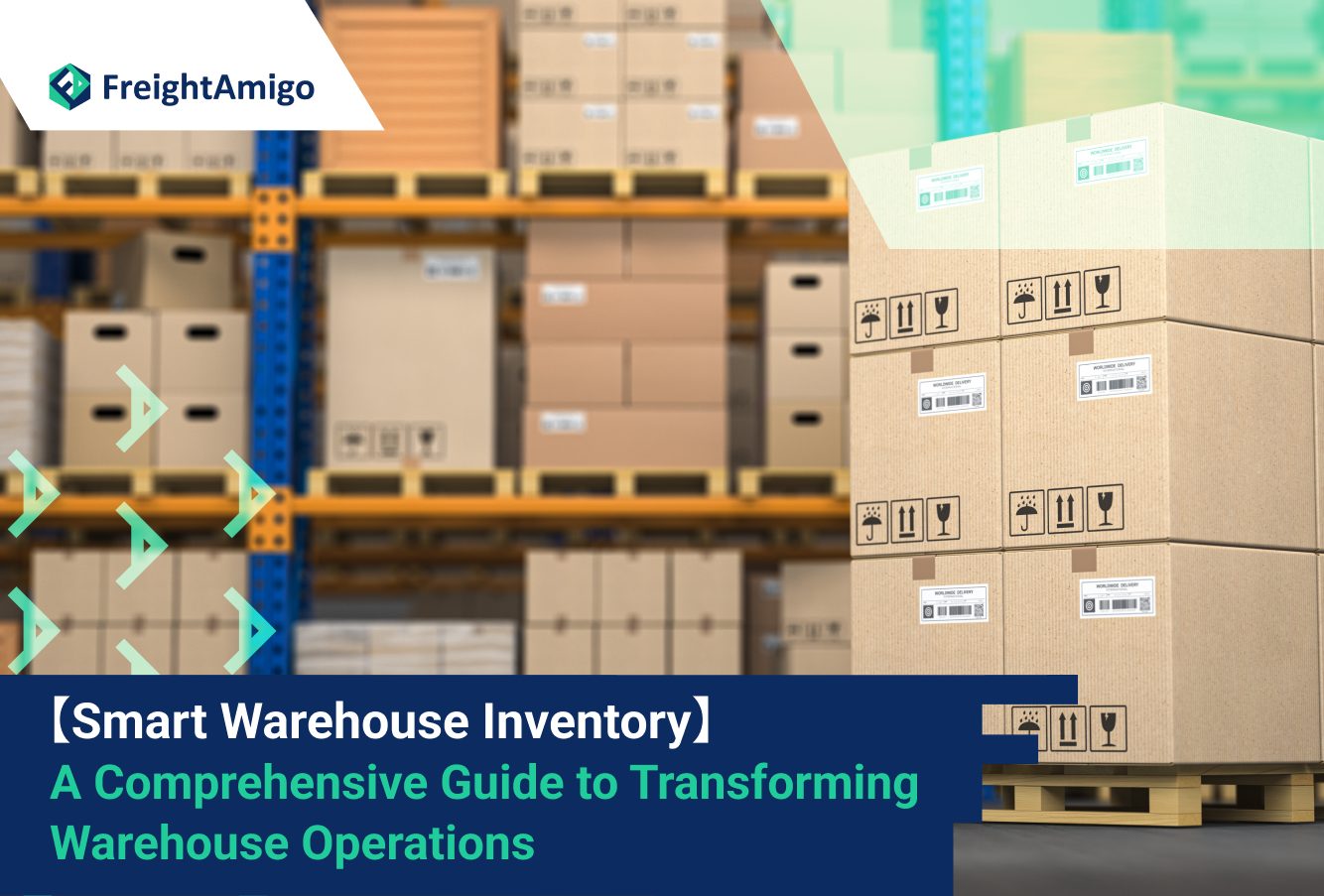Today, as businesses strive to optimize warehouse operations and boost efficiency, smart warehouse technology is rapidly gaining traction. This article explores the concept of smart warehouse inventory, highlighting its benefits, challenges, successful implementation case studies, and the potential of modern technologies to transform Warehouse Operations.
Latest update on 29 January, 2024 by Aurora Park– Marketing Analyst at FreightAmigo
Want to compare the best Express, Air Freight, Sea Freight, Rail Freight & Trucking rates so as to have better control on cost?
What is Smart Warehouse Inventory?
A smart warehouse inventory refers to a technologically advanced inventory management system integrated within a warehouse environment. Leveraging technologies like the Internet of Things (IoT), Artificial Intelligence (AI), Machine Learning (ML), and cloud computing, it streamlines logistics management and optimizes warehouse operations.
The Role of Technology in Warehousing
According to a study by the Material Handling Institute, the adoption of new warehouse technology leads to a 50% increase in productivity and a 25% reduction in operating costs. As the demand for fast and efficient supply chain operations increases, the role of technology in warehouses is becoming more critical.
Benefits of Smart Warehouse Inventory
Implementing a smart warehouse inventory system offers numerous advantages that can revolutionize warehouse management and drive operational excellence:
Enhanced Scalability
Smart warehouse inventory systems enable warehouses to scale their operations up or down based on demand. This flexibility allows for efficient resource allocation and optimal inventory management.
Improved Accessibility and Collaboration
Cloud-based platforms facilitate real-time data access, enabling warehouse staff to collaborate seamlessly across multiple locations, departments, and stakeholders.
Cost Savings
By eliminating the need for extensive hardware investments and maintenance costs, smart warehouse inventory systems reduce capital expenses and provide more predictable monthly subscription-based pricing models.
Enhanced Data Security
Data security and privacy become critical concerns with the increased use of IoT devices and data-driven technologies. Smart warehouses generate vast amounts of data, including sensitive information about inventory, operations, and customer orders. Protecting this data from unauthorized access and ensuring compliance with privacy regulations is paramount.
Advanced Analytics and Insights
Smart warehouse inventory systems offer sophisticated analytics capabilities, empowering businesses to derive valuable insights from vast amounts of data for informed decision-making.
Warehouse Management Process and Automation Needs
The overall success of the warehouse depends on the smooth running of vital processes. The layout of the facility and labor costs are often seen as the main factors influencing expenses. However, the detailed analysis of operations shows that paying salaries and maintaining the building is not the largest expense that a company faces.
Automated Warehousing Systems
ERP systems can revolutionize businesses and ease their paths to growth. A successful ERP implementation requires a lot of planning to ensure success. Moreover, it requires a lot of buy-in from employees and a lot of training during the process.
Successful ERP Implementation Case Studies
Here are examples of three successful ERP implementation projects that highlight the benefits of smart warehouse inventory systems:
Fulton & Roark
Fulton & Roark, a retailer of men’s grooming products, implemented a cloud-based ERP system after experiencing high growth rates. The ERP system reduced labor costs by over 30%, more than doubled productivity, and increased sales by roughly 50% year-over-year without increasing headcount.
N&N Moving Supplies
N&N Moving Supplies, a distributor of moving equipment and supplies, implemented an ERP system after expanding from one location to multiple locations in various states. The ERP implementation reduced payroll processing time by 84%, balanced accounts faster, and improved the accuracy of hours and vacation time counts.
Green Rabbit
Green Rabbit, a supply chain logistics provider specializing in fast delivery of perishable goods, implemented an ERP system after it grew substantially and anticipated further expansion. The ERP system allowed Green Rabbit to deliver tens of thousands of orders per day without delays or errors.
These case studies demonstrate how smart warehouse inventory systems can streamline operations, enhance efficiency, and increase productivity.
Future Trends in Cloud Transformation
As technology continues to advance, several future trends are expected to shape cloud integration transformation in warehouse management:
Internet of Things (IoT) Integration
IoT devices will play a significant role in warehouse management, providing real-time data on inventory, equipment, and environmental conditions. Cloud platforms will integrate with IoT devices to enable automation, predictive maintenance, and data-driven decision-making.
Artificial Intelligence (AI) and Machine Learning (ML)
AI and ML technologies will further optimize warehouse operations by analyzing vast amounts of data to identify patterns, optimize inventory, and improve demand forecasting accuracy.
Robotics and Automation
Cloud-based solutions will increasingly integrate with robotics and automation technologies to streamline warehouse operations. This includes automated picking and packing systems, autonomous mobile robots for material handling, and intelligent warehouse optimization algorithms.
Blockchain for Supply Chain Transparency
Blockchain technology will play a vital role in ensuring transparency and traceability in the supply chain. Cloud platforms will integrate blockchain solutions to securely track and verify transactions, improving trust and reducing fraud.
Transform your Warehouse Operations Today
Embracing smart warehouse inventory technologies has become imperative for businesses in the dynamic logistics landscape. Leveraging automation, data analytics, robotics, and artificial intelligence will allow your organization to transform warehouse operations and achieve cost savings.
Smart warehouse inventory is not just about implementing advanced technologies; it’s about transforming the way businesses manage their inventory and streamline their operations. It’s about driving efficiency, enhancing customer satisfaction, and ultimately, achieving business growth.
There are different options for cargo transportation. If you want to choose the most convenient and suitable solution, it is best to have the full support of logistics experts! If you are planning to transform your warehouse operations, please go to the FreightAmigo page for inquiries.
Read More:
【Smart Shipping】 Revolutionizing Logistics and Warehousing in Toy Industry
【Revolutionizing Factory Automation】 The Pivotal Role of IoT in Connecting Machines and Systems
Smart Warehouse Inventory | Revolutionizing Supply Chain
Smart Warehouse Inventory | IoT for Real-time Tracking
If you have any inquiries on logistics/supply chain, feel free to contact FreightAmigo now:
Chat with us online | Hotline: +852 28121686 | WhatsApp: +852 27467829









































